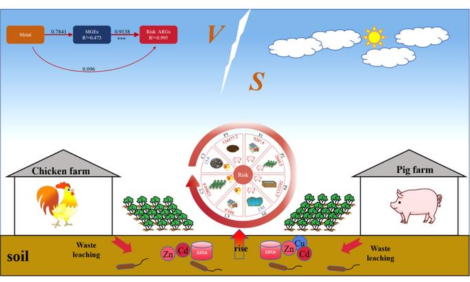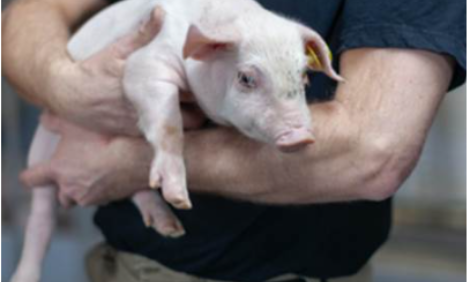



PMWS – Nature or Nurture?
Researchers report their investigations into the genetic susceptibility of pigs to porcine circovirus 2 (PCV2) in the June 2008 PCVD newsletter.Many breeders know only too well the major impact of PMWS on the well being of their pigs and the serious consequences of it for farm profitability.
PMWS is caused by infection with Porcine Circovirus 2 (PCV2), but the virus alone is not enough to create problems in a herd. Factors such as management and feeding also play a part in disease development. Some observations have indicated that part of the explanation for why some pigs are more severely affected by the virus than others could be an inheritable natural resistance or an inheritable increased susceptibility to PCV2.
* "PMWS is not an inheritable disease in the common sense, but a gene for increased susceptibility to the syndrome can segregate from parents to offspring within a pedigree." |
An increased susceptibility has been seen in offspring from specific boar lines. Pigs from the same litters growing up in the same environment and exposed to the same amount of virus nevertheless often develop disease to different degrees. This is a well-recognised pattern associated with inheritable diseases where parents can have different genetic make-up.
They can be carriers of a 'disease gene' without being affected, but transmit the gene to their offspring. The progeny of such a couple will be a mix of both healthy and diseased animals. PMWS is not an inheritable disease in the common sense, but a gene for increased susceptibility to the syndrome can segregate from parents to offspring within a pedigree in the same manner as a disease gene.
The heritability of PMWS susceptibility is being investigated and aims to identify genes that influence PMWS susceptibility. The ultimate goal is to develop a genetic test to be used for selection of PMWS resistant breeding animals and thereby minimize or eliminate the problems with PMWS in pig breeding and production.
A number of litters and a number of unrelated individuals of known PMWS status are being used to find a connection between inheritance of 'good genes' and PMWS-free animals and inheritance of 'bad genes' and PMWS-affected animals. Work is ongoing but it is already clear that at least one gene seems to have quite a big effect on disease development.
A good candidate gene has been identified but it is still too early to say how central this gene is for the development of PMWS, and also whether it is important in all pigs or just in some populations. For the same reason, it cannot yet be said if this gene can form the basis for a genetic test that can be useful in selection of breeding animals. This research project has, nevertheless, looked at PMWS from a new angle that, together with other results in this EU research program, has given us a new and unique viewpoint in the quest to better understand PMWS.
October 2008
Further Reading
| - | Find out more information on PMWS by clicking here. |








